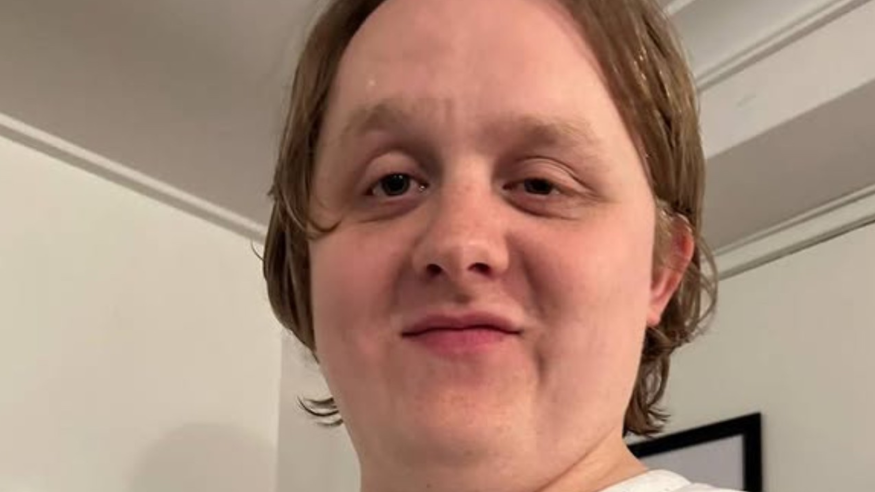Lewis Capaldi and Tourette's: What It Is, How It Affected His Career, and Who Could Have It?
After losing his voice on stage in 2023, Lewis Capaldi's powerful Glastonbury comeback and mental health advocacy mark a new era in his career.

Lewis Capaldi, 29, has never shied away from vulnerability, but in recent years, that honesty has taken on new weight. After years of grappling with involuntary tics and anxiety, the singer-songwriter publicly revealed his Tourette's diagnosis in September 2022. It would mark the start of a deeply personal journey that would reshape his career and connection with fans.
A Defining Moment in Glastonbury
A massive turning point occurred in June 2023 at his Glastonbury performance, where midway through his set, Capaldi lost his voice and was unable to continue singing his hit song 'Someone You Loved'. The audience stepped in and sang along for him so that he could complete the show, as the singer apologised live for being unable to hit the notes.
@lewiscapaldi been mad looking back at it all. thank you so much for still being here x
♬ Survive - Lewis Capaldi
Shortly afterwards he announced he would take a break from touring to address his health, citing the impact of his Tourette syndrome diagnosis and anxiety as reasons.
In a candid video shared with BetterHelp on 7 July 2025, Capaldi said therapy had been 'a massive part of the reason I've been able to be a musician again'. He credited therapy for helping him accept that anxiety would always be part of his life, but that how he responds to it matters most.
He described the past two years as a period of learning balance between his physical wellbeing and emotional recovery. His decision to step away from performing in 2023, which he called 'the most difficult of my life', allowed him to work with medical professionals and make meaningful progress.
By December 2023, Capaldi told fans he had 'noticed a marked improvement' in his Tourette's symptoms and anxiety levels. This positive update was followed by an emotional return to Glastonbury on 27 June 2025, marking his first performance in two years. Addressing the crowd, he thanked them for their support and said, 'I just wanted to come and finish what I couldn't finish the first time round.'
Returning to the Stage and Giving Back
Capaldi's comeback and subsequent partnership with BetterHelp offered 734,000 hours of free therapy to the public, representing a thousand hours for every day he had been away from performing. In his post announcing the collaboration, he wrote that therapy had been crucial to getting him back to a place where he felt ready to perform again.
Following his Glastonbury return, Capaldi announced tour dates in the UK that began in September 2025. He shared the news on Instagram, saying, 'About time I got back to work... hope to see you out there.' The gesture reflected a new chapter in his career — one defined by self-care and awareness rather than pressure and burnout.
Understanding Tourette's Syndrome
Tourette's syndrome is a neurological disorder that causes involuntary, repetitive movements or sounds known as tics. These can range from simple motor tics, such as eye blinking or shoulder shrugging, to complex tics involving coordinated movements or vocalisations. Common vocal tics include grunting, throat clearing, or repeating certain words or sounds.
The condition typically appears between the ages of 2 and 15, with the average onset around 6 years old. Males are three to four times more likely than females to develop Tourette's. Although there is no cure, symptoms often lessen with age, and many people manage the condition through therapy, medication, or stress management.
Tics can vary in frequency and severity, often worsening with stress, illness, or fatigue. Some people experience a physical sensation, known as a premonitory urge, before a tic occurs, which can feel like pressure or tension that is only relieved by performing the movement or sound. While some individuals can briefly suppress tics, doing so can lead to discomfort or exhaustion.
When to Seek Medical Advice
Not all tics indicate Tourette's syndrome. Children, for instance, may develop temporary tics that disappear within weeks or months. However, persistent or severe tics that interfere with daily life should be evaluated by a doctor or paediatric specialist. Early diagnosis helps rule out other health issues and ensures access to appropriate treatment options.
For people like Capaldi, the condition can present emotional and professional challenges, particularly when performing publicly. Yet with proper support and self-understanding, it is possible to lead a fulfilling life and career. As Capaldi's story shows, therapy, patience, and awareness can transform the way people experience and manage Tourette's.
Originally published on IBTimes UK
Subscribe to Latin Post!
Sign up for our free newsletter for the Latest coverage!
© Copyright IBTimes 2025. All rights reserved.















